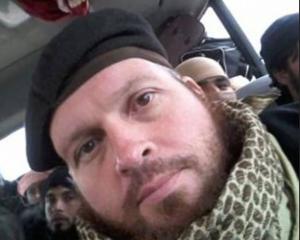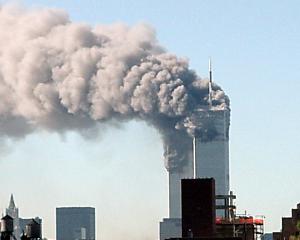The army struck hard after a week of rebel advances, including the capture of two military bases near the capital. Rebels had been planning to push into central Damascus from their strongholds on the outskirts and fighting in the past week has been fierce.
Activists said heavy rocket fire struck towns close to the Damascus airport highway, where rebels and the army were locked in three days of clashes. Some described constant shelling, similar to carpet bombing, in towns like Beit Saham.
"It was frightening because it was the first time we heard continuous shelling. Really powerful explosions, one after the other, were shaking the area. I could see fire coming up from the town," said Samir al-Shami, from the opposition's Syrian Youth Union, speaking by Skype.
"This was the worst day in those people's lives."
In a sign the government had regained some control over the airport, EgyptAir said it was resuming flights to Damascus and Aleppo on Monday after a three-day halt in which Damascus airport was effectively closed due to unrest. The airline's head said conditions were stable.
No comment was immediately available from Emirates Airline, which also suspended its flights indefinitely.
The army's assaults appear to have staved off a rebel advance into central Damascus so far. But neither side has gained ground in recent days, and fighting continued along the outskirts of the city despite heavy shelling by Assad's forces.
But rebels said the area around Damascus airport was not secure, with clashes still erupting along the highway. It is difficult to verify opposition reports because the government restricts media access into Syria.
Other activists said the highway was in army hands but the area was still unstable due to fighting in nearby towns like Beit Saham, about 1 kilometre away.
"No one controls that road. The army has tanks along the road, but the whole area is exposed to rebel attacks and they could fire on it any time," said one, asking not to be identified.
ROCKET ATTACKS AND LEBANESE BORDER CLASH
Rocket attacks on Sunday killed at least 10 in the town of Deir al-Asafir, 12 km east of Damascus, activists said. Video published by activists from the town showed at least five bodies, one of them a young boy and one an elderly man. The other bodies were wrapped in blood-spattered white sheets.
Syrian security officials and diplomatic sources say the army's goal is to push rebels back and seal off central Damascus from the surrounding suburbs where the opposition is dominant.
Rebels say they want to control the airport because the army has used it to bring in weapons. Western intelligence reports earlier this year said that Iran, Assad's main backer, had been using civilian aircraft to fly military equipment and personnel through Iraqi airspace into Syria.
American officials say the arms flow into Syria has continued due to Iraqi reluctance to check flights, according to a New York Times article. It said only two inspections had occurred since Iraq agreed to a U.S. request in September and that Iran may have been tipped off about the searches.
Prime Minister Nuri al-Maliki told reporters in a press conference in Baghdad that there was no such request.
"There is no ability to inspect all planes destined to Syria and there was no U.S. request to inspect all aircrafts because they know that this is not possible," he said on Sunday.
Lebanese troops on Sunday clashed with Syrian rebels on the border between the two countries on Sunday, in what a security source called the first such fight between Lebanon's army and the rebels.
The clash occurred when a Lebanese border patrol spotted the rebel fighters along the border and the rebels opened fire to prevent the patrol from approaching, a Lebanese military source said. He said there were no casualties.
CAR BOMBS
In Syria's central city of Homs, a car bomb killed at least 15 people and wounded 24 on Sunday, Syria's state news agency SANA said. It said the blast in the city's Hamra district also damaged many nearby residential buildings. The government and the opposition traded blame for the blast.
There has been a rise in the number of car bombs around the country. The British-based Observatory, which has a network of activists across Syria, reported four car bombs on Saturday.
The group gave a preliminary death toll for Sunday's fighting of 140, including about 39 in the Damascus suburbs.
Violence has risen in Syria particularly since rebels began to contest Assad's control around the capital and Syria's largest city Aleppo, but foreign powers remain deadlocked.
Western countries support the opposition but Russia, Syria's main arms supplier, and China have blocked three U.N. Security Council resolutions condemning Assad and reject sanctions.
Assad, whose family has ruled Syria autocratically for four decades, says he is fighting off radical Islamist militants funded by the West and Gulf Arab countries.
State television on Sunday said the army was "eliminating al Qaeda terrorists" in the rebel stronghold of Daraya.
Rebels said the army entered part of Daraya, a suburb on the southern outskirts of Damascus where fighters have launched mortars into the capital. Rebel spokesman Abu Nidal said the army had entered one side of the town but that rebels were still in control of the rest of the area and were fighting back.
The army was firing heavy artillery and rockets into the town, rebels said.











